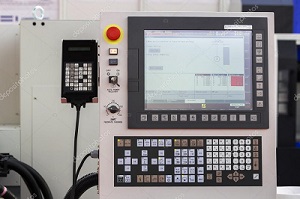Posted on 26th Feb 2024

Computer Numerical Control (CNC) machines have revolutionized manufacturing processes across industries, offering unparalleled precision, speed, and automation. To further optimize the performance of CNC machines, engineers and manufacturers are increasingly turning to advanced solutions such as Variable Frequency Drives (VFDs). These sophisticated devices enable precise control of motor speed and torque, enhancing the capabilities of CNC machines and unlocking a myriad of benefits for modern manufacturing operations.
At the heart of CNC machines lie electric motors responsible for driving various components such as spindles, axes, and tool changers. Variable Frequency Drives, also known as adjustable frequency drives or inverters such as Lenze Drive, Keb Drive, are electronic devices designed to control the speed and torque of these motors by varying the frequency and voltage of the electrical supply.
Integrating VFDs into CNC machines offers a multitude of advantages, including:
Precision Control: VFDs enable fine-tuned control of motor speed and torque, allowing for precise adjustments to match specific machining requirements. This level of control enhances accuracy and quality in machining processes, resulting in superior finished products.
Energy Efficiency: By adjusting motor speed to match the required workload, VFDs help optimize energy consumption in CNC machines. Unlike traditional fixed-speed motors, which operate at constant speed regardless of the workload, VFD-controlled motors only consume as much energy as needed, leading to significant energy savings and reduced operating costs.
Reduced Wear and Tear: Constantly running motors at full speed can lead to increased wear and tear on mechanical components, reducing their lifespan and requiring more frequent maintenance. With VFDs, motors can operate at lower speeds when appropriate, reducing mechanical stress and extending the longevity of CNC machine components.
Flexibility and Adaptability: VFDs offer unparalleled flexibility, allowing operators to easily adjust motor speed and torque parameters to accommodate different materials, tooling, and machining processes. This adaptability enhances the versatility of CNC machines, enabling them to tackle a wider range of tasks with optimal efficiency.
Variable Frequency Drives find widespread application across various CNC machine types, including milling machines, lathes, routers, and laser cutters. In the automotive industry, for example, VFDs are utilized in CNC machining centers for precise milling, drilling, and grinding operations, contributing to the production of high-quality engine components and body parts.
In the aerospace sector, VFD-equipped CNC machines play a critical role in manufacturing complex aircraft components with tight tolerances and intricate geometries. By enabling precise control over cutting speeds and feed rates, VFDs help aerospace manufacturers achieve superior surface finishes and dimensional accuracy, meeting stringent industry standards.
While the benefits of integrating VFDs into CNC machines are evident, certain challenges and considerations need to be addressed:
Compatibility: Ensuring compatibility between VFDs and existing CNC machine systems, including motors, controllers, and software, is essential for seamless integration and optimal performance.
Training and Maintenance: Adequate training of operators and maintenance personnel is crucial to maximize the benefits of VFDs and ensure proper upkeep of the equipment.
Cost Considerations: While VFDs offer long-term cost savings through energy efficiency and improved productivity, initial investment costs may deter some manufacturers. However, the return on investment in terms of increased efficiency and reduced operating expenses typically outweighs the initial outlay.
According to CM Industry Supply Automation (servo drive & servo motor expert), Variable Frequency Drives represent a transformative solution for enhancing the performance, efficiency, and versatility of CNC machines in modern manufacturing environments. By providing precise control over motor speed and torque, VFDs enable manufacturers to achieve higher levels of precision, productivity, and energy efficiency, driving innovation and competitiveness in the industry. As technology continues to evolve, the integration of VFDs into CNC machines will remain a cornerstone of advanced manufacturing, empowering manufacturers to meet the demands of an ever-changing market landscape with confidence and precision.